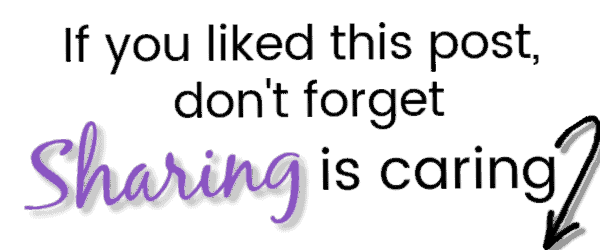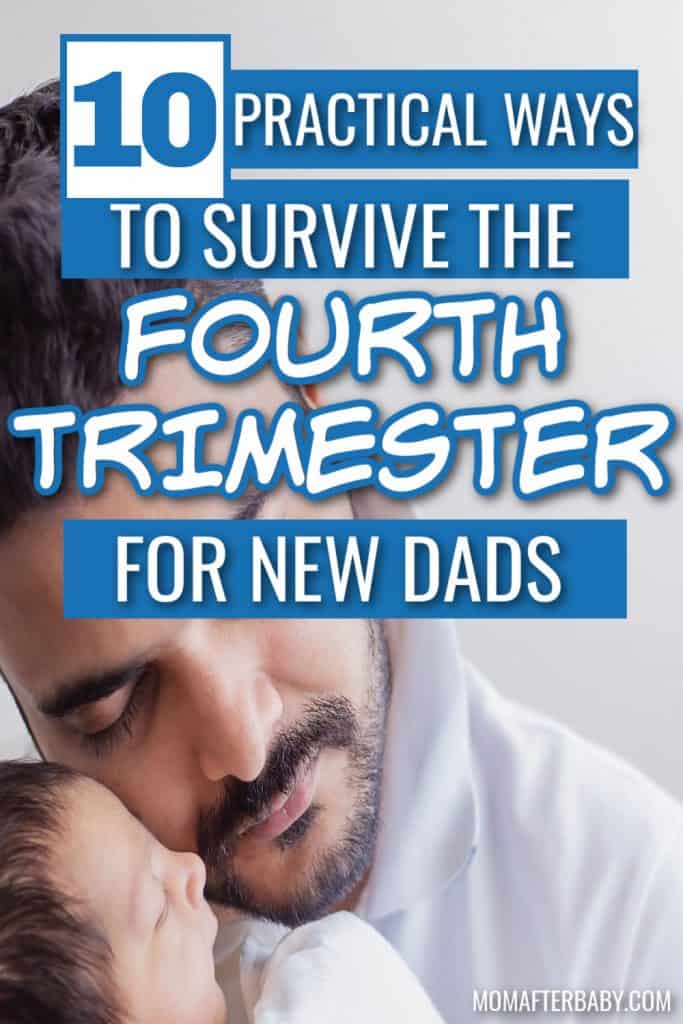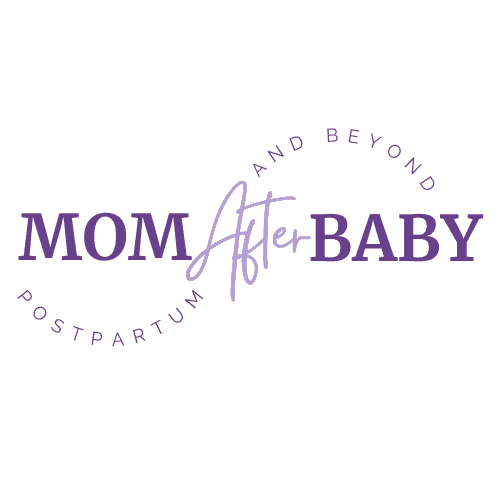The Fourth Trimester For Dads — How To Survive A New Life After Baby
This post may contain affiliate links that I may receive a commission from if you click & buy. In addition, the information on this site is NOT intended to be medical advice. See my full policy for more information.
Wondering what the fourth trimester for dads is like? Can dads go through their own ‘postpartum depression’ or is that just something moms go through? You’re in the right place to learn everything about postpartum for dads.
Believe it or not, the fourth trimester for dads can be equally as much of a roller coaster as it is for mom.
In fact, between 2% to 25% of fathers have reported signs of depression (postpartum depression) ranging from pregnancy to the first year after their baby’s birth.
According to Healthy Children, that statistic can jump all the way up to 50% if mom has any kind of perinatal or postpartum mood disorder.
Pretty crazy, right?
So, I’m writing to tell you how dads can survive this new life after baby (with some input from my fantastic husband, too!).
The Fourth Trimester For Dads
What is the fourth trimester?
The fourth trimester consists of the FIRST 12 weeks after the baby’s birth.
It is commonly looped in together with the term “postpartum”.
It is those early days of learning, growing, adjusting, and more importantly, surviving.
What is dad’s role after childbirth (in the fourth trimester)?
There’s a huge misconception that dads have to be the breadwinners of the household. Though it’s probably more common, it isn’t always how the story plays out.
Dads role after childbirth, in my opinion, is to really take the time to bond with their baby, be a strong support system for mom, and also be honest about their own journey through fatherhood.
The key here is to be just as involved in creating your new normal of parenting with your partner together — as one unit.
Sure, maybe mom will be breastfeeding baby which leaves you in the shadow of feedings, but there’s still ways you can jump in (as seen below).
When we shift the thought process of each parent going through this new stage of life on their own, but actually together, it can feel a whole less lonely.

How dads can help new moms after birth:
It’s true, mom will be going through a much different recovery after birth than dads.
In fact, during those early days, she will probably need more support than usual, so here’s how dad can help:
- Be an ear to listen and shoulder to lean on — judgment-free.
- Help cook the meals.
- Make sure she always has something to drink to stay hydrated.
- Wash her breast pump parts.
- Burp baby after feedings.
- Take as many diaper changes as you can.
- Be patient with her.
- Don’t assume she isn’t doing or trying her best.
- Offer to take on more of the chores.
- Encourage her to ask for help when needed.
- Allow her to have time alone to recharge her batteries (this baby carrier comes in extra handy for dads caring for their babies).
- Stay up with her on occasion during late-night wakings, just to show her support, talk to her, and be encouraging.
Tips to help dads survive the fourth trimester:
1. Increase your empathy
In order to survive the fourth trimester, you need to increase your empathy as a person.
As my husband will say, “Your wife is recovering from birth both mentally and physically. Yes, it’s an adjustment for both parents, but in those early days she will need you to have a little extra empathy for her.“
And trust me, there isn’t a single person postpartum that can’t benefit from a little extra empathy.
As dads show their care and concern for their partners after birth, I would hope moms can also share a little empathy with dad and his transition into this new journey of fatherhood as well.
2. Prioritize your needs too
Having kids can make it so easy to forget about your own basic needs as a human beings. It’s no wonder moms joke about never getting a shower — we fail to prioritize our simple needs after kids!
Yes, babies take a lot of work. Yes, your baby may not sleep. BUT — we can always ask for help and try to prioritize those needs. It won’t always work, but it’s important to try.
As for dads, those needs could be different.
Maybe dad enjoys golfing once a month. While it’s realistic to expect him to slow his roll during these early days, asking him to give up his one favorite hobby forever could be a huge deal for him.
As for prioritizing your needs, keep that door of communication OPEN with your partner. Express what kind of needs you need to be fulfilled and work together to make a plan so they can be met.
3. Be willing to take the back seat
This is a HUGE one. It’s not a small ask either — to be willing to take the back seat for a little while.
That means if mom normally does all the cooking, don’t expect any fresh cooked meals from her any time soon.
If mom normally does all the laundry, don’t come down on her if it hasn’t been done.
If you enjoy having sex multiple times a week, definitely do NOT expect her to be in the mood at all (especially right after birth — she needs time to physically heal anyways).
Taking the back seat is a major life adjustment. It’s a lot to ask of anyone, but in the early days of postpartum, they’re crucial acts.
4. Have an outlet
Because dad will be putting some of his needs behind mom and baby’s for a little bit of time, it’s crucial he find an outlet for them.
A hobby, sport, or anything to do as a way to feel like he can refill his cup throughout the fourth trimester.
If he has any close friends he may be needing to catch up with, now is the time!
5. Willingly spend time with your baby
Bonding with baby seems to come much less natural for dads. This can make it easier to let mom do all the baby care tasks such as feedings, diaper changes, tummy time, burping, and more!
However, if baby can take a bottle, encourage dad to do some feedings!
If mom needs to shower, let dad do a little tummy time or take baby for a walk.
It might feel awkward at first (and don’t worry, it’s normal), but these are the moments you can take advantage of to help that build that bond with your brand new baby.
6. Learn how to swaddle
Ok, ok, you technically don’t need to learn how to swaddle if you use one of these baby swaddles (and you should, because they’ll save you SO much time).
Learning how to swaddle your baby with just a simple swaddle blanket can be a lifesaver.
You can get baby snug and ready for sleep, calm them down if they’re fussy, the list goes on and on.
7. Lean into your gut & instincts
Dad may feel like because he isn’t the primary care giver (in some instances) that mom knows best.
As a stay-at-home mom who is the primary caretaker, I tend to feel like I do normally have a better sense of what’s “regular” vs. “irregular” for our boys, BUT that doesn’t mean my husband’s intuitions should ever be ignored either.
It’s important moms encourage their partners to trust their instincts, and that they support them as well.
8. Don’t be afraid to set boundaries with friends or family
There are two common scenarios that dads end up stuck between after having a child:
- Having to keep the peace between their mother and partner, because mom keeps giving unsolicited advice and their partner is, well, tired of it.
- Trying to keep the balance between not having enough time to go out with the boys so often vs. spending time being a father.
Once your baby is born, life changes. It doesn’t mean you can’t have a life outside of fatherhood or that you have to cut everyone out of your life, but you should start to practice setting healthy boundaries with those you love.
9. Read a baby book or two
It can be easy for dad to feel like he has no idea what to do with baby when they’re just…hangnin’ out!
One of my husband’s favorite activities was reading to our boys! As they got older, it became a staple in our bedtime routine. And eventually, we got to watch them learn how to point at images and turn the pages on their own.
This was the book that started it all, maybe your little one will love it too!
10. Ask for help
Yes, there will be times dad may need to ask for help too.
I don’t know what it is about parenting that makes us want to power through all the challenges but hear me now – it is 100% ok to ask for help when needed.
Parenting isn’t easy.
Soothing a baby when you have no idea why he or she is upset isn’t easy.
As I suggest for moms, I suggest the same for dads too — to make a list of individuals you can trust and turn to for help when needed.
It’ll make the entire process of “who can I call for help” much easier when you’re in the heat of being overwhelmed.
Now that you have all the best tips to help you navigate the fourth trimester for dads are you feeling a little more confident to take on the challenge?
Looking for more support through the fourth trimester?




